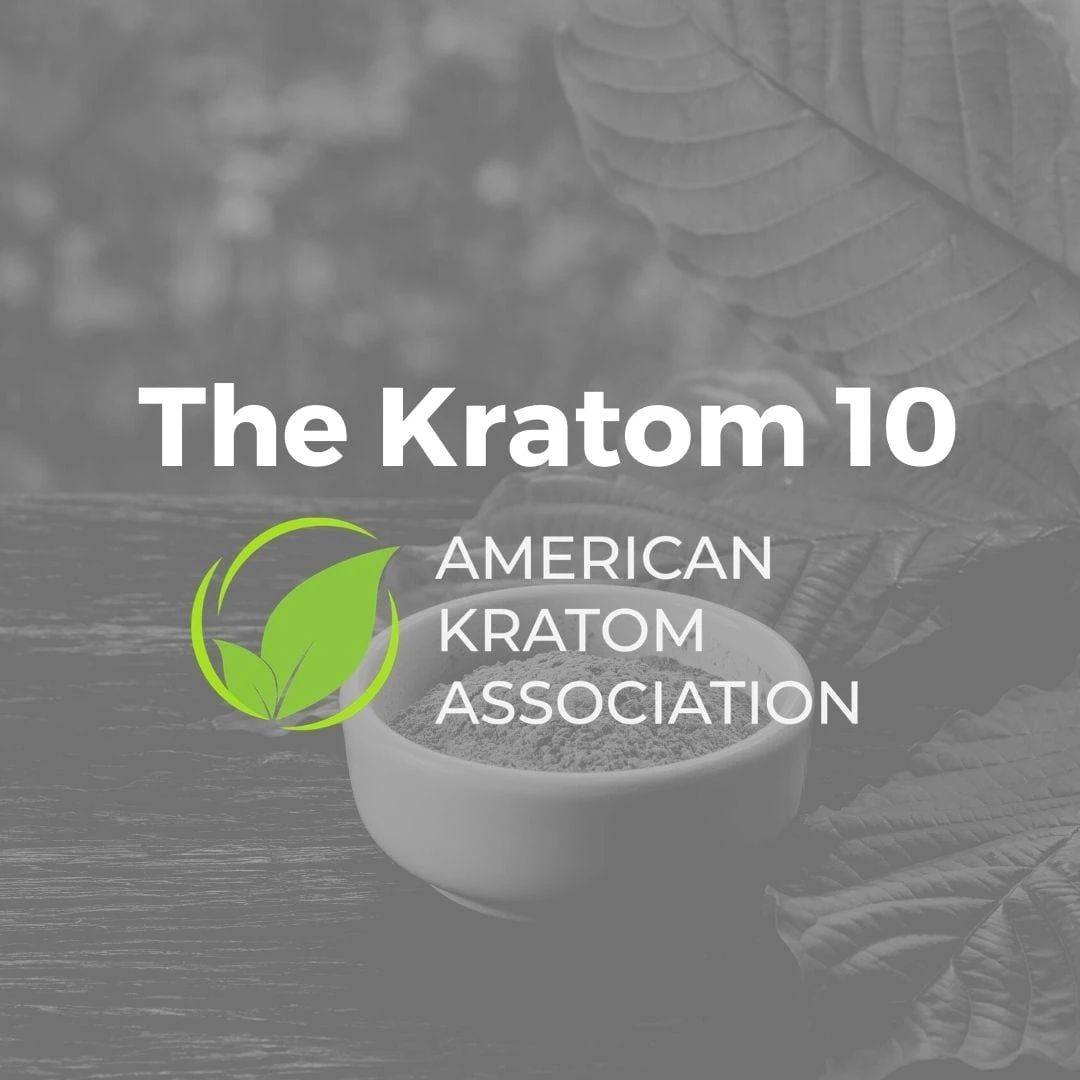American Kratom Association
Top 10 Reasons for Kratom: Full Top 10
#KRATOM CONSUMERS – #KRATOMSAVESLIVES Hear the voices of kratom consumers
1) Nora Volkow, Director of the National Institute on Drug Abuse (NIDA) thinks we should be studying kratom – not classifying it as a Schedule I drug.
Dr. Volkow points to exciting new basic science that “point toward the potential of this drug [kratom] in pain research as well as the need for further research on the pharmacology of kratom’s constituents, their toxicity and potential value in the treatment of Opioid Use Disorder (OUD)”
Dr. Volkow previously testified to Congress that when a substance gets a Schedule I, it makes research much harder.
NIDA. 2020, July 7. Reviewing NIDA’s 2019 Achievements and Looking to the Future.
2) Albert Garcia-Romeu, PhD, faculty member at Johns Hopkins University School of Medicine conducted research showing kratom is significantly helping people with opioid dependence
Dr. Garcia-Romeu’s research reports that 87% of U.S. adult kratom consumers treating opioid dependence with kratom reported relief from withdrawal symptoms – and 35% were free from opioids >1 year.
Kratom consumers reported low incidence of severe side effects, and low severity of kratom substance use disorder.
3) NIDA funded kratom animal studies found no significant addition liability — Scott Hemby, PhD and his team led one study, and Kai Yue led the NIDA team study
Both studies suggested a limited abuse liability of mitragynine and potential for kratom to be a treatment to reduce opioid abuse because it lowered morphine intake by the test animals.
The criteria for scheduling under the Controlled Substances Act requires the substance to have high abuse potential. American Kratom Association
4) Jane Babin, PhD, JD, conducted an extensive analysis of the deaths the FDA claimed were associated with kratom and found all the deaths were the result of polydrug use or adulterated kratom products, and found the FDA claims to be unreliable.
None of the death reports claimed by the FDA provides a cohesive or reasonable scientific basis to conclude any of the deaths was caused by kratom, nor does the information released conclusively support any conclusion that kratom was associated to the cited death other than coincidentally. (The FDA Kratom Death Data: Exaggerated Claims, Discredited Research, and Distorted Data Fail to Meet the Evidentiary Standard for Placing Kratom as a Schedule I Controlled Substance, March 2018) American Kratom Association
5) NIDA concludes “There have been multiple reports of deaths in people who had ingested kratom, but most have involved other substances . . . there have been some reports of kratom packaged as dietary supplements or dietary ingredients that were laced with other compounds that caused deaths.”
https://www.drugabuse.gov/publications/drugfacts/kratom
CDC reported postmortem toxicology testing detected multiple substances for almost all decedents, including Fentanyl and fentanyl Analogs, Heroin, prescription opioids and cocaine.
6) The FDA insists kratom has the same effects as classic opioids, but leading scientists, including Andrew Kruegel, PhD, of Columbia University disagree:
“Kratom doesn’t seem to share the dangerous side effect of respiratory depression that other opioids have—that’s when someone’s breathing slows down and could stop completely. Better understanding how certain opioids produce certain effects is key to developing safer painkillers . . . The problem with saying it’s ‘an opioid’ without qualification is that it just paints everything with this broad brush, and obviously carries a negative connotation given what’s going on in the country right now.”
https://www.vice.com/en_us/article/neqn4b/fda-declared-kratom-an-opioid
7) The U.S. Congress FY2020 and 2021 Budget Bills call for more research on kratom and recognize its value in the fight against the opioid crisis in America.
The Committee encourages NIDA to expand research on all health impacts of kratom, including its constituent compounds, mitragynine and 7- hydroxymitragynine. The Committee is aware of the potential promise of kratom- derived compounds for acute and chronic pain patients who seek safer alternatives to sometimes dangerously addictive and potentially deadly prescription opioids. American Kratom Association
8) Jack Henningfield, PhD, adjunct professor at Johns Hopkins University, conducted research with a team of investigators showing risks of overdose deaths are many magnitudes higher with opioids than with kratom.
“By any of our assessments, it appears that the risk of overdose death is >1000 times greater for opioids than for kratom”
9) Individual states are enacting appropriate regulations to protect consumers from dangerously adulterated kratom products.
Four states have enacted the Kratom Consumer Protection Act (KCPA) and 21 states were considering passage in 2020 before the COVID-19 shutdown. The KCPA requires (1) kratom manufacturers to follow current good manufacturing processes; (2) no dangerous adulterants or synthesized kratom alkaloids; (3) no alteration of the natural plant alkaloid content; (4) labels showing consumers contents of kratom products; and appropriate limits restricting sales to minors.
10)#KRATOM CONSUMERS – #KRATOMSAVESLIVES
Hear the voices of kratom consumers. Kratom Consumers Tell Their Stories
Whole Earth Gifts




